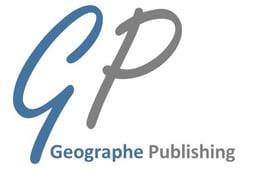write my short story
Arthur Paternoster
Author of
Understanding Anxiety and Panic Attacks.
Write Your Way to Freedom
The NonFiction Dynamo
Dynamic Speaking for Leaders
Teacher in Writing and Publishing U3A Naturaliste
Public Speaker
Publisher
This website is associated with writemybook.cloud a website that is the basis of my writing and publishing class I run for the members of a Busselton community group
Both websites will show you how to write your first book and how to publish it or write your short story and have it published with the short stories on this website. You might want to check out the website for Geographe Publishing








Steppingstones to Greatness: Why New Authors Should Start with Short Stories
Aspiring authors dream of sprawling novels, complex characters, and worlds that come alive. But before embarking on an epic journey, consider taking a detour through the captivating realm of short stories. While novels offer grand tapestries, short stories act as vibrant brushstrokes, honing your skills and building confidence on a smaller canvas. Here's why new authors should consider starting with short stories:
1. Refining the Essentials: Unlike the sprawling sagas, short stories demand laser focus. Every word counts, forcing you to master the essentials of storytelling. You'll develop a keen eye for crafting compelling characters, weaving intricate plots, and building immersive settings, all within a concentrated frame. This translates beautifully to novels, where tight prose and impactful scenes are crucial.
2. Experimentation Playground: Short stories are your creative sandbox. Explore different genres, voices, and narrative styles without the immense commitment of a novel. Want to dabble in sci-fi? Write a futuristic tale. Curious about historical fiction? Craft a poignant period piece. Each story becomes a miniature experiment, helping you discover your niche and refine your unique voice.
3. Feedback Fiesta: Submitting short stories opens the door to valuable feedback. Literary magazines, contests, and writing groups offer critiques and insights, allowing you to learn from experienced readers and editors. This external perspective helps identify strengths and weaknesses, propelling your writing forward much faster than solitary endeavors.
4. Confidence Booster: Completing a short story is a tangible achievement. Seeing your work polished and published, even online, provides a confidence boost that fuels your writing journey. Each finished story becomes a stepping stone, motivating you to tackle bigger projects with a newfound sense of belief in your abilities.
5. Portfolio Powerhouse: Polished short stories build a diverse portfolio showcasing your versatility and talent. This can be invaluable when seeking representation, grants, or publication opportunities. Publishers often appreciate authors who can demonstrate their command of different styles and narratives, and a portfolio of strong short stories speaks volumes about your potential.
Remember: Writing a novel is a marathon, not a sprint. By starting with short stories, you build the stamina and skillset needed to tackle longer projects. So, embrace the short story format, explore your creativity, and enjoy the journey. You might just find that these bite-sized stories become the building blocks of your literary masterpiece.
Bonus Tip: Many successful authors, from Stephen King to Neil Gaiman, started with short stories. Use their journeys as inspiration, and remember, every great writer began somewhere. Now, pick up your pen and start crafting your own short story adventure!


So let us start writing your short story
Unveiling the World of Short Story Genres: A Detailed Exploration
The beauty of the short story lies in its versatility. It can morph into different shapes and sizes, each embodying a unique atmosphere and approach. Navigating the diverse landscape of short story genres can be exciting, so let's delve into some popular ones:
1. Genre Fiction:
Action & Adventure: Thrilling tales packed with chases, escapes, and high-stakes scenarios. Think Indiana Jones or James Bond.
Crime & Mystery: Intriguing puzzles with detectives unravelling conspiracies, solving murders, and seeking justice. Agatha Christie and Sherlock Holmes are iconic examples.
Fantasy: Immerse yourself in magical worlds with mythical creatures, epic quests, and battles between good and evil. J.R.R. Tolkien and George R.R. Martin are genre giants.
Horror: Chilling stories that explore our darkest fears, the supernatural, and the macabre. Edgar Allan Poe and Stephen King are masters of this genre.
Romance: Heartwarming journeys of love, connection, and overcoming obstacles to find happily ever after. Nicholas Sparks and Nora Roberts are popular in this realm.
Science Fiction: Explore futuristic worlds, encounter advanced technology, and ponder the potential consequences of scientific advancements. Isaac Asimov and Ray Bradbury are renowned sci-fi authors.
2. Literary Fiction:
Character-Driven: Explores the complexities of human experience, emotions, and relationships. Focuses on character development and internal struggles. Alice Munro and Chimamanda Ngozi Adichie are known for their character-driven narratives.
Experimental: Pushes boundaries with unconventional structures, language, and themes. Aims to challenge reader expectations and offer unique perspectives. James Joyce and Virginia Woolf are pioneers of this genre.
Historical Fiction: Transports readers to different historical periods, weaving fictional characters into real-life events and exploring the social, political, and cultural landscapes of the past. Hilary Mantel and Ken Follett excel in this area.
Realistic Fiction: Depicts everyday life with its challenges, joys, and complexities, aiming for authenticity and relatability. John Updike and Alice Munro are masters of realistic fiction.
3. Other Subgenres:
Humour: Satire, wit, and playful narratives that evoke laughter and light-heartedness. P.G. Wodehouse and David Sedaris are known for their humorous stories.
Suspense: Builds tension and keeps readers guessing, often blurring the lines between horror, mystery, and psychological thrillers. Gillian Flynn and Harlan Coben are masters of suspense.
Coming-of-Age: Explores the challenges and experiences of adolescence and personal growth. J.D. Salinger and Judy Blume are known for their poignant coming-of-age stories.
Remember:
Genres are not rigid: Blending and bending genre conventions is encouraged! Focus on the story first: Choose a genre that best serves your narrative and message.Explore widely: Read short stories across different genres to discover your favourites.
Writing your short story
Writing a short story requires careful planning and attention to detail.
Firstly, it is important to come up with an interesting and engaging plot that will capture the reader's attention from the beginning. The story should have a clear structure, including an introduction, rising action, climax, and resolution. Developing well-rounded characters is also crucial to make the story relatable and believable. Each character should have their unique traits and motivations.
Additionally, setting the scene and creating a vivid atmosphere can enhance the reader's experience. It is important to write concisely and use descriptive language to paint a picture in the reader's mind. Lastly, revise and edit the story to ensure it flows smoothly and effectively conveys the intended message. With these guidelines in mind, anyone can successfully write a captivating short story.
Keep your story between 1,000 and 7,500 words.
Focus on one protagonist and one antagonist.
Use distinct voices for your characters.
Strive for concise, fresh, and specific language.
Follow classical Act Structure (for Genre stories) or explore more subtle structures (Literary stories).
Capture the reader's interest from the beginning and maintain suspense
Writing Revision & Editing:
Write a messy first draft, focusing on getting ideas down. Revise revise and edit, ensuring each word and scene contributes to the story. Use the short story checklist to evaluate your work.
Short Story Checklist: Unleash Your Inner Storyteller
This checklist will help you craft your short story into a captivating masterpiece. Remember, these are guidelines, not strict rules. Use them as a springboard for your creativity!
Concept & Structure:
Idea & Originality: Did you start with a captivating idea? Don't worry about being completely original – focus on making the story yours.
Outline or Develop Characters: Do you have a clear understanding of your characters, their desires, flaws, and voices?
Conflict: Does your story have a strong central conflict that drives the plot and keeps readers engaged?
Structure: Did you consider using classical Act Structure (Genre stories) or explore more subtle structures (Literary stories)?
Scene & Setting: Does each scene contribute to the plot and character development? Does the setting vividly come to life?
Engagement & Impact:
Hook: Does the beginning captivate readers and make them want to continue?
Suspense: Does your story build tension and keep readers guessing?
Climax: Is there a satisfying climax that resolves the main conflict?
Themes: Does your story explore deeper themes or ideas that resonate with readers?
Pacing: Does the story have a good balance of fast-paced action and moments of reflection?
Voice & Style: Does your writing have a distinct voice and style that engages readers?
Technical Considerations:
Point of View: Did you choose a consistent point of view (usually first or third person) and stick to it?
Grammar & Mechanics: Did you carefully proofread for grammatical errors and inconsistencies?
Dialogue: Does your dialogue sound natural and reveal character traits?
Show, Don't Tell: Do you immerse readers through action and dialogue instead of simply telling them what's happening?
Character Development: Do your characters evolve and change throughout the story?
Additional Tips:
Get Feedback: Share your work with trusted readers or writing groups for constructive feedback.
Revise & Polish: Don't be afraid to revise and rewrite to improve your story.
Read Widely: Explore different short stories across genres to find inspiration and learn from other writers.
Remember, there is no one-size-fits-all approach to writing. Use this checklist as a guide, but don't be afraid to break the mould and experiment with your storytelling!
Upload your manuscript
Publication on this website, and or
Publication with other short stories in paperback.
At all times you will retain the copyright and ownership of the manuscript



